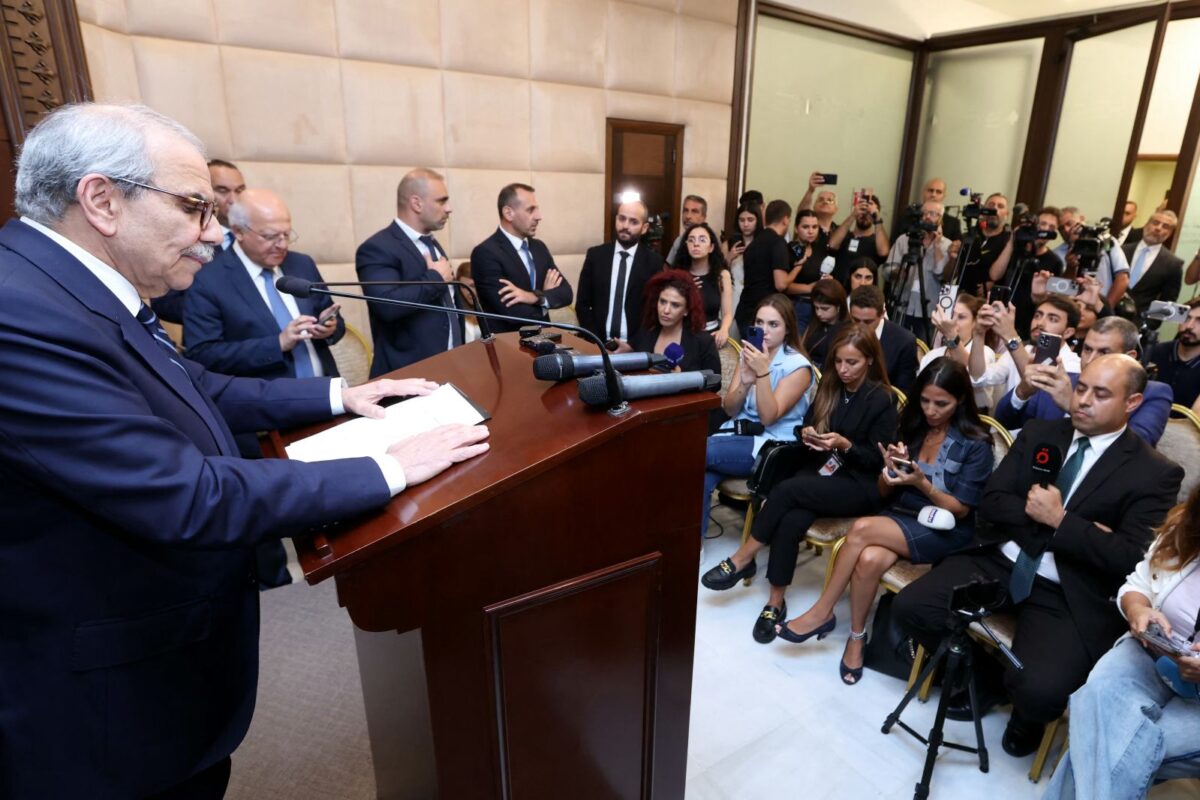
Hezbollah has suffered significant losses in recent months. The Israeli front has become a battleground of attrition, and whatever strategic value Hezbollah once claimed in the so-called “balance of deterrence” is visibly eroding. Moreover, ass the regional calculus shifts, one thing changed immensely: Hezbollah’s weapons are no longer an Israeli issue. They are a deeply Lebanese issue.
These weapons—kept outside the authority of the state—are not just a matter of defense. They are a political tool, used time and again to delay any real dialogue between Lebanese on equal footing. They skew the rules of national debate, disrupt state-building, and block the emergence of a truly multicultural and inclusive Lebanese narrative.
That’s why today’s announcement by Prime Minister Nawaf Salam on behalf of the government marks a turning point. For the first time in years, the Lebanese state has formally tasked the army with preparing a disarmament implementation plan to be ready by the end of 2025. This is not just symbolic. It moves the conversation from vague consensus to concrete policy. And it reaffirms that disarmament is not a foreign request. It is a Lebanese constitutional obligation, rooted in the Taif Agreement, the ministerial statement, and the oath of office.
Yes, President Joseph Aoun has been clear in his desire to avoid further bloodshed. That is noble. But avoiding war cannot come at the cost of avoiding truth. The lack of communication and transparency from the presidency is not just a weakness, it is becoming an obstacle to national dialogue. By remaining vague or silent, the presidency is creating a vacuum, one that Hezbollah fills with its own narrative: that disarmament is an Israeli demand, not a Lebanese one. And unfortunately, many within Hezbollah’s support base still believe that. This confusion is not accidental. It is the result of leadership that refuses to speak clearly about the national necessity of equality under one state, one law, and one army.
Dialogue cannot happen in silence. National leadership requires speaking with—not just for—the people. If the president is concerned about backlash or instability, he should say so. If he has a roadmap or reservations, he should share them. Silence only reinforces the idea that something is being hidden or delayed. A healthy national dynamic requires honesty. And it requires that his advisors be engaged, aware, and connected to the pulse of the population, not just geopolitical fears.
This is no longer a debate about whether disarmament is a desirable idea. It is a necessary condition for the future of Lebanon. You cannot build a modern, pluralistic state while tolerating an armed faction that operates outside its authority. And you certainly cannot build national unity while allowing disinformation to thrive unchecked.
Disarmament is not an Israeli demand. It is a Lebanese one. We are not traitors for wanting equality with Hezbollah and the communities it claims to represent. We are citizens demanding equity. Demanding that the rules of the game apply to everyone. That there be no first-class Lebanese and second-class Lebanese. No veto power through force.
Is asking for equality treason? Is building a real state betrayal? If they believe this genuinely, it is a tragic misunderstanding of patriotism. If they know it’s false, then it is something worse: a deliberate manipulation. A misinformation campaign meant to preserve power, not protect Lebanon.
With the cabinet’s decision to involve the army in planning disarmament, the state has finally spoken. Now it’s time for the rest of us to speak too, and to demand that this plan be more than paper. Because resistance without accountability becomes domination. And domination with weapons can never be the path to national unity.
Ramzi Abou Ismail is a Political Psychologist and Senior Research Fellow at the Institute for Social Justice and Conflict Resolution at the Lebanese American University.
The views in this story reflect those of the author alone and do not necessarily reflect the beliefs of NOW








